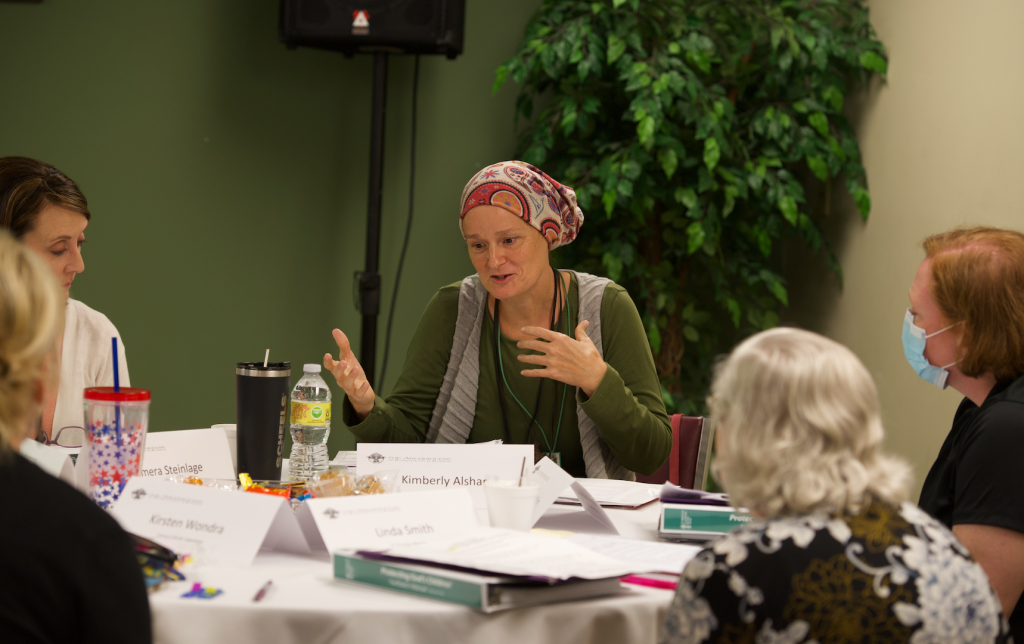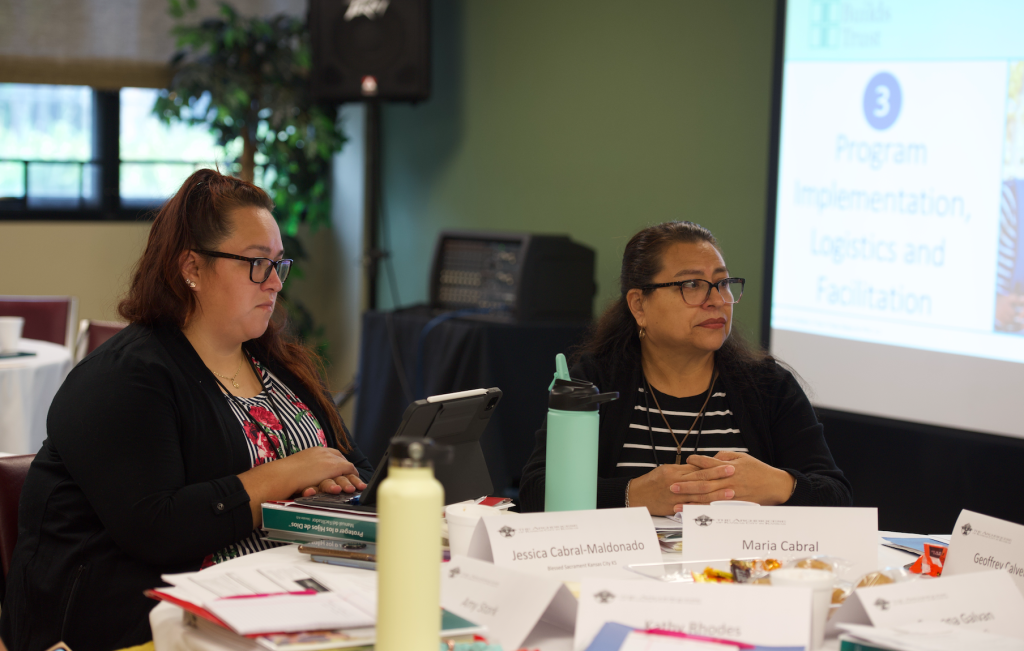
by Moira Cullings
moira.cullings@theleaven.org
KANSAS CITY, Kan. — Twenty-five men and women are answering the call to help protect children and vulnerable adults in the Archdiocese of Kansas City in Kansas.
On Aug. 4 and 5 at Savior Pastoral Center in Kansas City, Kansas, the group completed a two-day training session to become Virtus facilitators.
Now, in collaboration with local parish safe environment coordinators, they will schedule Virtus sessions throughout the archdiocese with the goal of educating people on the warning signs of abuse and how to act when someone poses a threat to children and vulnerable adults.
“We’ve been planning this training for a long time,” said Monica Lane, a parishioner at St. Michael the Archangel Parish in Leawood.
“It was exciting,” she continued, “to see people from diverse backgrounds come together with such dedication to this vital ministry of caring and protecting our youth and vulnerable.
“I’m eager to see the impact they have in our parishes and beyond.”

Lane led the training session with Franchiel Nyakatura, a parishioner of Our Lady & St. Rose in Kansas City, Kansas. Both women have been Virtus facilitators for more than 15 years.
Members of the archdiocesan office for protection and care were also present for the session.
‘This training works’
Virtus was created after the National Catholic Risk Retention Group gathered with experts in various disciplines at a forum in March 1998.
Anyone in the archdiocese who teaches, volunteers or works with children in some capacity undergoes Virtus training.

“Since the inception of the program [in the archdiocese] in 2003, this is only the third time that new facilitators have been brought on,” said Sandy Vielhauer, protection compliance administrator for the office for protection and care.
The last time new facilitators were added was 2006.
“At one point, we had approximately 40 facilitators,” said Vielhauer, “and prior to COVID, there were only 12 remaining for the entire archdiocese.”
Jenifer Valenti, director of the office for protection and care, was excited to finally welcome a new group of volunteers.
“We are thrilled to be able to grow the program in this way and have all of these people willing to share their time and their talent with us to help spread awareness about abuse prevention and strengthen our safety net of protection,” she said.

Valenti said nearly 50,000 people in the archdiocese have already received Virtus training.
“Statistically, studies show that in communities where they talk about sexual abuse prevention, there is a lower incident rate,” she said. “This training works, and we’re excited about it.”
A ‘blanket of protection’
Sara Baker, coordinator for Catechesis of the Good Shepherd at Church of the Nativity in Leawood, was asked by her parish to become a Virtus facilitator.
She happily agreed.
“It was just another way of serving the parish and also keeping kids in a safe environment,” she said.

Baker hopes to help “the parents and other volunteers be aware of the great opportunity we have to keep them safe.”
“When I was going through Virtus training myself,” she said, “I remember feeling overwhelmed and kind of angry that [abuse] even goes on [in the world].
“The more we know and the more people that know about it, the less it has the ability to happen.”
Geoffrey Calvert, a theology teacher at Bishop Ward High School in Kansas City, Kansas, was asked to attend the training session by his principal.
“Teaching at Ward and trying to get back to normal after COVID, we’re trying to become more diligent with the students doing service hours as part of a requirement for theology classes,” he said.
The school hopes that once they are Virtus-trained, students will volunteer especially within its feeder grade schools to “be a presence for Ward and develop a habit of service,” said Calvert.

Vielhauer is grateful for the new facilitators. Her office hopes to eventually have one to two at each parish and school in the archdiocese.
“Virtus facilitators play a major role in our efforts to protect our children and vulnerable adults,” she said, and creating safe environments starts with them.
“Their work can make a profound difference in a child or vulnerable adult’s life,” she said. “We know that the more people we have woven into our efforts of safety, like the facilitation of these trainings, the tighter our blanket of protection will be.”






